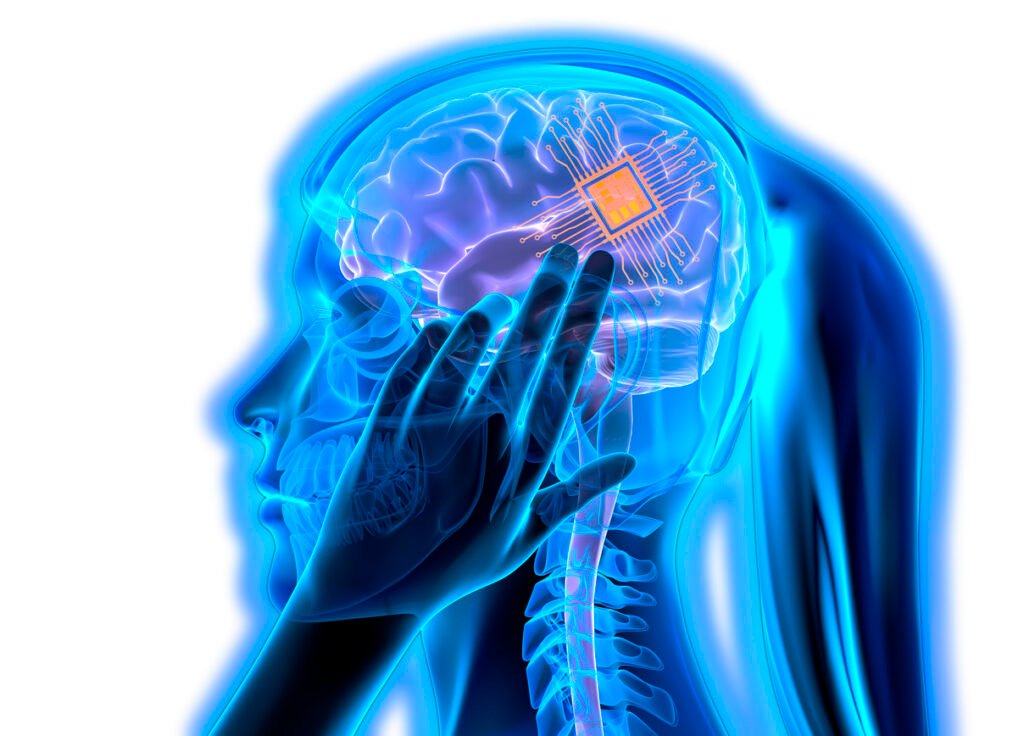Researchers Found the Brain’s Memory Switch

In a series of groundbreaking experiments, scientists used a technique called optogenetics to identify and deactivate the specific neurons responsible for holding certain memories in mice. By targeting the “engrams” — the physical traces of memories — they were able to switch memories off without harming the rest of the brain. The mice that once froze in fear when placed in a certain chamber no longer reacted, as if the memory had vanished completely.
This isn’t about distracting the brain or making animals forget passively. It’s about flipping a literal neural switch. If the same engram-manipulating method is refined in humans, it could theoretically allow us to erase specific traumatic or unwanted memories. That’s a stunning possibility, especially for those suffering from PTSD or severe phobias. But it also raises the question: are we ready to edit the mind like a file system? Erasing memory isn’t just about relief — it’s about identity, experience, and the complex human puzzle of who we are.
Forgetting Trauma Could Become a Medical Procedure
For people suffering from conditions like post-traumatic stress disorder, the idea of being able to remove the most painful parts of their past sounds like a miracle. Imagine veterans no longer haunted by flashbacks or survivors of abuse finding peace without reliving horror. That’s the promise some scientists are cautiously exploring with targeted memory erasure research.
Instead of numbing symptoms with medication or years of therapy, this kind of treatment would remove the source altogether — the actual memory. And early studies in animals are showing that it’s possible to do so without affecting the brain’s other functions. Still, there’s hesitation in the medical world. Removing trauma might help mental health, but trauma also plays a role in personal growth and resilience. If we remove those memories, what else might we unintentionally erase and what does healing mean if we never face the thing that hurt us?
Memories Are More Fragile Than We Thought
Most of us think of memories as things stored securely in the brain, like digital files on a hard drive. But new research is proving otherwise. Memories are malleable, constantly being edited and reshaped every time we recall them. That makes them more vulnerable to interference — and more open to manipulation — than anyone realized.
In lab settings, scientists have altered memories in mice just by exposing them to slightly different cues during recall. This suggests that even our most deeply held memories are fluid and susceptible to change. That’s good news for therapies aimed at softening painful recollections, but it also means that memory is far from infallible. If scientists begin developing tools that tamper with memory in humans, even with good intentions, it could lead to blurred lines between truth and perception. What happens when our minds can’t be trusted to remember honestly?
Erasing Memories Could Change Personal Identity
Our memories define us. They shape our values, our fears, our relationships, and how we see the world. Erasing a painful memory might sound like freedom, but what if that memory was part of what made you who you are? Scientists are beginning to worry that tinkering with memory could unintentionally alter someone’s personality or disrupt their emotional development.
In mice, erasing a fear memory changed the animal’s future decisions. In humans, that could mean the difference between being cautious or reckless, empathetic or indifferent. If we begin to use memory erasure as a tool, we may need to ask: what counts as “essential” experience? Could people use this tech to forget heartbreaks, betrayals, even moral failures — and what kind of society do we create if we’re always able to forget what hurts us most?
There’s a Risk of Unwanted Side Effects
While the idea of erasing specific memories is compelling, scientists still don’t fully understand how interconnected our brain’s memory system is. In some studies, disrupting one memory in mice inadvertently caused confusion in other behaviors, even affecting unrelated learning or stress responses.
In humans, those kinds of unintended consequences could be dangerous. You might forget a traumatic accident — but also forget how to drive confidently. You might erase a breakup — but lose the lessons that help build stronger relationships. Even if we master the technical side of erasing memories, we can’t always predict the emotional and behavioral fallout. This kind of brain editing might solve one problem, only to create new ones we’re not equipped to fix. It’s a powerful science — but it’s walking a razor’s edge.
Memory Deletion Could Be Used Without Consent

One of the most unsettling questions in memory research isn’t about the science, it’s about the ethics. What happens if the ability to erase or alter memories falls into the wrong hands? In a medical setting, memory manipulation could be a voluntary treatment. But in the wrong context, it could be used without consent, to silence, manipulate, or control.
Governments or corporations with access to this kind of technology might one day be able to influence people’s behavior not through persuasion, but through removal — of protests, traumas, or inconvenient truths. If that sounds dystopian, it’s because it is. The technology to precisely remove or suppress memories is still in its infancy, but conversations about privacy, consent, and agency need to happen now — not after the tools are perfected. Once someone else can access your mind’s history, the meaning of personal freedom takes on a whole new urgency.
Some Scientists See Memory Editing as a Form of Healing
Despite the ethical minefield, many researchers believe that memory editing holds enormous promise. For people who have tried every available treatment for trauma, severe anxiety, or phobias, memory manipulation could offer a true breakthrough. Rather than dulling pain or avoiding triggers, these techniques aim to target and reframe the very source of suffering.
In some cases, it might not involve erasing a memory entirely, but instead modifying its emotional charge. Instead of reliving a trauma in full emotional detail, a person might recall it in a way that feels neutral or distant. This approach would preserve the memory’s context while reducing its destructive weight. For many mental health professionals, that balance — retaining insight while reducing pain — could be the safest and most ethical version of this evolving technology. It’s not about forgetting who you are. It’s about finding a way to live with what happened.
Legal Systems Aren’t Ready for Editable Memories
If scientists succeed in altering or deleting human memories, our legal systems may face unprecedented challenges. Testimonies could become unreliable not just because of forgetfulness or bias, but because the memories themselves were changed — on purpose. How can a court rely on a witness if their recollection was modified through a medical procedure?
The implications ripple far beyond criminal law. Insurance claims, therapy sessions, even job evaluations often rely on memory. A world where memories can be rewritten complicates accountability, authenticity, and trust. And right now, there are few, if any, legal protections in place. As neuroscience races ahead, lawmakers will need to reckon with this new landscape, where truth may no longer be something we can count on to live in the mind unaltered.
It Might Start With Trauma — and End With Convenience
Most memory erasure research is focused on therapeutic applications, like helping trauma survivors or anxiety patients. But as with many technologies, once it becomes safe and reliable, people may start seeking it out for less critical reasons. Erasing embarrassment, awkward encounters, or failed relationships might become a form of emotional hygiene — something people turn to not for survival, but for comfort.
That’s where things could get blurry. When memory becomes something we can control like a playlist, the temptation to edit out the hard parts might grow too strong. But those very experiences, painful as they are, often shape our growth, resilience, and depth. A world where everyone curates their past to avoid discomfort might be more peaceful — but also more hollow. Scientists and ethicists alike are asking whether we’ll lose something essential if we make forgetting too easy.
Memory Is Personal But Society Shares the Cost

While memory editing might sound like a personal choice, its consequences are collective. If someone erases a shared experience, a relationship, a trauma, a conflict, what does that mean for the other people involved? Memory isn’t just private. It’s a link between people, a way we understand each other and build trust.
If one person forgets something that shaped both lives, it can create confusion, frustration, or emotional disconnection. Multiply that across society, and you have a world where shared reality becomes harder to hold onto. Relationships could suffer. History could fragment. And truth might become something negotiated rather than remembered. In the end, even if the science of memory editing becomes precise, the emotional terrain it reshapes will remain deeply human — fragile, messy, and full of meaning.
